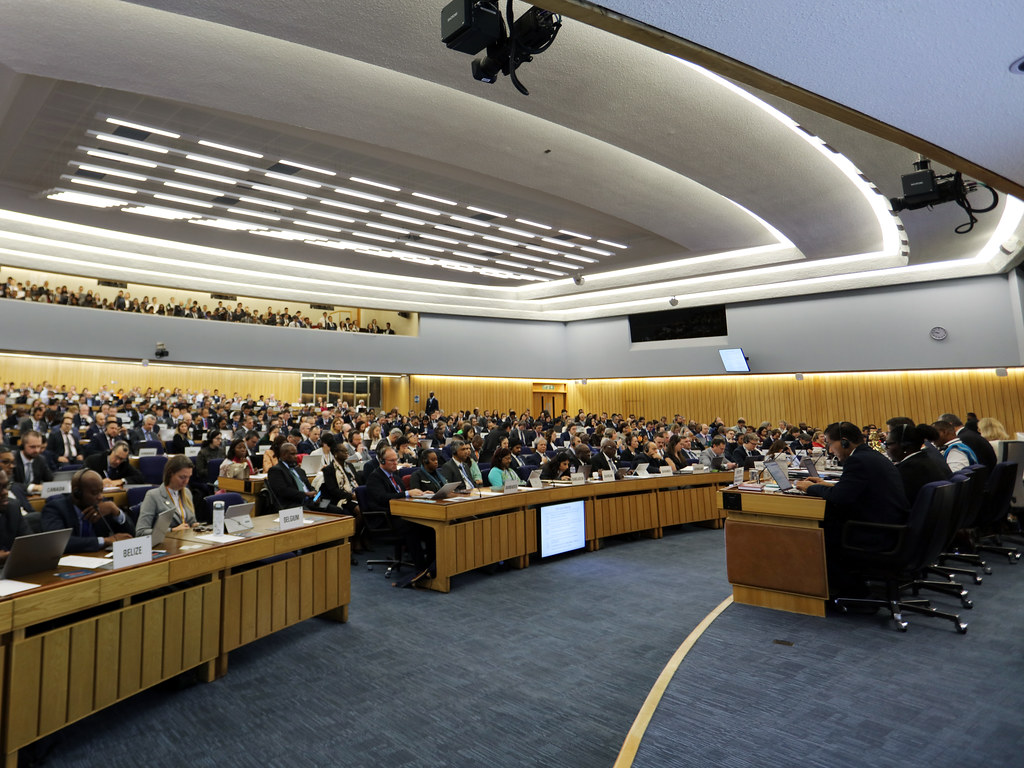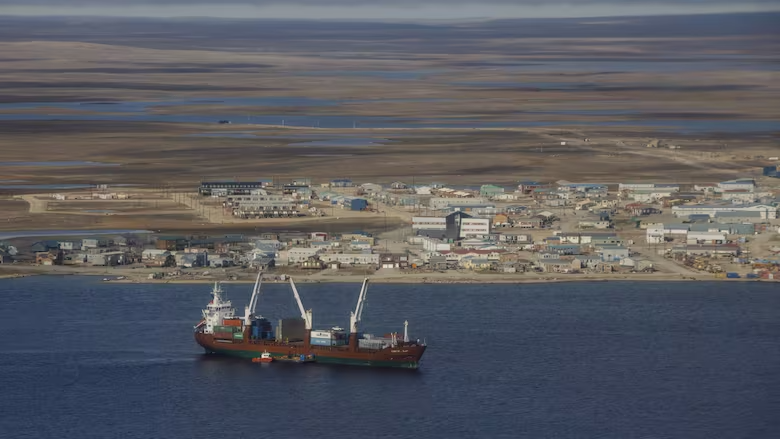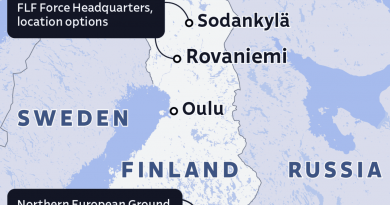Net-Zero Framework for int’l shipping shelved for a year after U.S. led-pushback

After a week of high-stakes debate and U.S.-led opposition, the International Maritime Organization (IMO) voted on Friday for a one-year delay on the adoption of its landmark Net-Zero Framework — a decision environmental groups called a major setback for global efforts to clean up shipping industry emissions.
“[The framework] represented years of negotiations, research, and collective effort,” Jenny Helle, an expert on decarbonisation of aviation and shipping at Carbon Market Watch, said in a statement. “It was a clear and urgent demand from both the industry and the public.
“Yet, due to pressure from the Trump administration and major fossil fuel producing countries, this opportunity for progress was lost.”
The maritime organization said in a brief statement on Friday that member states “will continue to work towards consensus,” using the next 12 months to bridge differences on the framework, while a technical group meets next week to keep drafting the guidelines for how it would work in practice.
Ships over limits would pay into global clean-fuel fund
The framework, drawn up in April, would have made shipping pay for its emissions. Under the plan, ships that exceed set limits would pay for their excess pollution, while vessels that perform better could trade or bank so-called “surplus units.”
Money collected through the scheme would go into a fund to support zero- and near-zero-emission fuels and technologies — particularly in developing countries and island states.
The rules would apply to ocean-going ships over 5,000 gross tonnes, which account for roughly 85 per cent of international shipping’s total CO₂ emissions. The IMO has said it wants the industry to reach carbon neutrality “by or around 2050,” with interim cuts of 20 per cent by 2030 and 70 per cent by 2040.
Concern for Arctic
The Net-Zero Framework has also been closely watched across the Arctic, where melting sea ice is opening new shipping routes and increasing traffic through fragile ecosystems.

Northern and Indigenous communities, already contending with rising coastal erosion and black carbon pollution from vessels, have often raised concerns in global forums that weaker or delayed shipping rules could deepen the climate pressures already reshaping their coasts.
Trump calls framework a “Global Green New Scam Tax.”
The IMO session, which ran from October 14–17, had been expected to end with a vote in favour of the Net-Zero Framework on Friday.
But in the days leading up to the decision, members of the U.S. administration mounted a strong campaign against the plan, arguing that the framework amounted to a global carbon tax that would raise costs for American consumers, businesses and travellers.
Officials warned the U.S. would retaliate against countries backing the proposal — including through measures like port fees, visa restrictions, sanctions and limits on ships registered in countries that supported the plan.
On Thursday, U.S. President Donald Trump took to the Truth Social platform saying he was “outraged” the vote would take place and characterizing it as a “Global Green New Scam Tax.”
Delay ‘a squandered opportunity’ say environmental groups
Environmental groups reacted sharply to the IMO’s decision, calling it a major setback for climate action.
“By delaying adoption of its Net Zero Framework, IMO has today squandered an important opportunity to tackle global shipping’s contribution to climate breakdown”, John Maggs, the Clean Shipping Coalition’s Representative at the IMO, said in a statement, warning that governments “serious about climate action” should use the next 12 months to rally support for adoption.
Others said the delay exposes how geopolitics has overtaken science in the IMO’s process.
“Emotions have run high, with once-ambitious alliances wavering and strategies eclipsing reason,” Anaïs Rios, senior shipping policy officer at Seas At Risk, said.
“With countries like Saudi Arabia leading efforts to delay, few expected a postponement to prevail — but here we are. The planet and the future of shipping don’t have time to waste.”
Questions, comments or story ideas? Contact Eilís at eilis.quinn(at)cbc.ca
Canada: Grounded cargo ship successfully refloated in Canadian Arctic: company, Eye on the Arctic
Norway: Hybrid-powered electric cruise ship navigates Northwest Passage, CBC News
Russia: Chinese freighter halves EU delivery time on maiden Arctic voyage to UK, Reuters
United States: U.S. Coast Guard monitors Chinese ships in Arctic waters…again, Eye on the Arctic




Hi, this was a great report, but I’m looking for information on how Canada voted. We voted FOR the IMO framework in April, and I want to make sure we did not abandon our principles and the planet in the face of bullying.